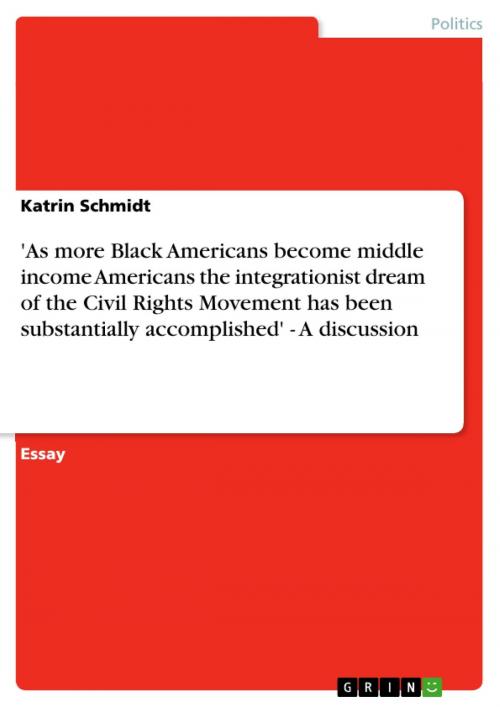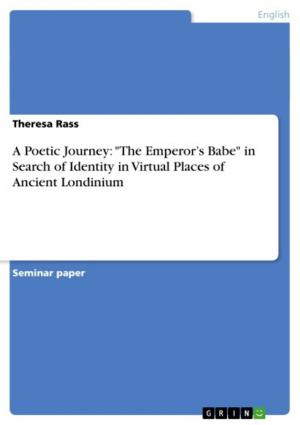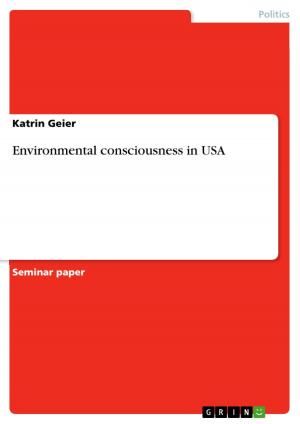'As more Black Americans become middle income Americans the integrationist dream of the Civil Rights Movement has been substantially accomplished' - A discussion
A discussion
Nonfiction, Social & Cultural Studies, Political Science| Author: | Katrin Schmidt | ISBN: | 9783640099498 |
| Publisher: | GRIN Publishing | Publication: | July 9, 2008 |
| Imprint: | GRIN Publishing | Language: | English |
| Author: | Katrin Schmidt |
| ISBN: | 9783640099498 |
| Publisher: | GRIN Publishing |
| Publication: | July 9, 2008 |
| Imprint: | GRIN Publishing |
| Language: | English |
Essay from the year 2005 in the subject Politics - International Politics - Region: USA, grade: 1,5, University of Nottingham (Nottingham Trent University), 20 entries in the bibliography, language: English, abstract: More than 39 years ago the African-American leader Martin Luther King gave his famous speech 'I have a dream' in front of 250,000 people in Washington D.C. He referred to the situation of African-Americans in 1863 when former President Abraham Lincoln signed 'The Emancipation Proclamation' to free African-Americans from being slaves. In his speech King stated that 'the Negro still is not free' (King 1963) and shared his dream of freedom and equality with the crowd - a day when 'every hill and mountain shall be made low' (ibid.). This was the peak of the US Civil Rights Movement (between 1955 and 1968) which aimed to bring full civil rights and equality under the law primarily to African American citizens in a non-violent way. It successfully put an end to racial segregation, especially in the southern states. Has the integrationist dream of the Civil Rights Movement come true or are African Americans still dreaming?
Essay from the year 2005 in the subject Politics - International Politics - Region: USA, grade: 1,5, University of Nottingham (Nottingham Trent University), 20 entries in the bibliography, language: English, abstract: More than 39 years ago the African-American leader Martin Luther King gave his famous speech 'I have a dream' in front of 250,000 people in Washington D.C. He referred to the situation of African-Americans in 1863 when former President Abraham Lincoln signed 'The Emancipation Proclamation' to free African-Americans from being slaves. In his speech King stated that 'the Negro still is not free' (King 1963) and shared his dream of freedom and equality with the crowd - a day when 'every hill and mountain shall be made low' (ibid.). This was the peak of the US Civil Rights Movement (between 1955 and 1968) which aimed to bring full civil rights and equality under the law primarily to African American citizens in a non-violent way. It successfully put an end to racial segregation, especially in the southern states. Has the integrationist dream of the Civil Rights Movement come true or are African Americans still dreaming?















